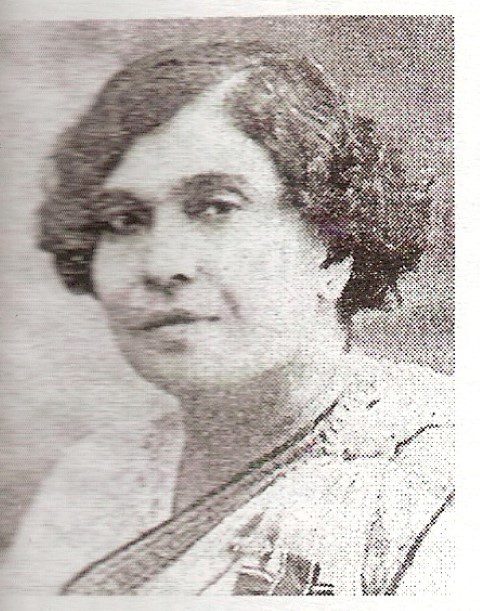K.S. Mohindra
Ottawa, Ontario, Canada
 |
| Dr. Mary Poonen Lukose |
In a country where the status of women has been less than impressive, the Indian physician Mary Poonen Lukose blazed fiercely forward in a field dominated by men. Specializing in obstetrics and gynecology, she demonstrated innovation, leadership, and effective organizing capacities, making significant contributions to public health, women’s health, and medicine, as well as advancing the status of girls and women.
Mary Poonen was born in 1886 in the erstwhile princely state of Tranvacore in Southern India. Tranvacore would form (with Cochin, another erstwhile princely state, and Malabar district of British India) the state of Kerala in 1956. Kerala has been heralded for its achievements in health and social justice (e.g. life expectancy rates were and continue to be superior to the rest of India and inequalities in health are relatively muted). While the advances in the health sphere in Kerala are often attributed to progressive public policies by the state’s elected communist government, there are also a number of historical particularities—including contributions made by women—that also help to explain Kerala’s achievements.
An only child, Mary Poonen grew up relatively privileged amongst the elite in Tranvacore. She wanted to be a physician, like her father (Dr. T.E. Poonen 1859-1916), but at that time there were no female physicians (or even female nurses). During her early years, she excelled at school, demonstrating a keen interest in the fine arts and sciences. Denied entry into the Maharaja’s College to study science because she was a woman, Mary Poonen went on to obtain a bachelor of arts in 1909—the first female student graduate in Kerala. Afterwards, since females were not allowed into medical colleges, she pursued her studies in the UK. Mary Poonen was the first Indian student to obtain her MBBA at London University (she also persisted in her passion for the arts, passing the London Music Examination). By this time, the First World War had broken out. Mary Poonen stayed on in the UK, undertaking postgraduate studies in medicine, including obstetrics and gynecology at the Rotunda Hospital in Dublin (formerly the New Lying-In Hospital) and pediatrics at the Great Ormond Street Hospital (formerly the Hospital for Sick Children) in London.
Dr. Mary Poonen turned down employment offers in the UK, returning to Tranvacore. In 1916, she was appointed to direct the Women and Children’s Hospital in Thaikadu, Trivandrum. The hospital had begun as a dispensary and then was transformed into a hospital in 1914 with one-hundred beds. The first cesarean section in Kerala was performed here and it has been said that Dr. Mary Poonen often performed caesarean sections by the light of hurricane lamps. In 1917 she married a lawyer, K.K. Lukose. Unlike many other women, she continued to work after her marriage (and two children). She did not belong to a matrilineal caste group (at that time there were matrilineal castes, in which women tended to have greater female autonomy, sexual freedom, and education compared to women belonging to other caste groups), but as a Syrian Christian woman with family connections to Christian missionaries and a Western education, she was able to take full advantage of an environment, fostered by matrilineal caste groups, which had opened up opportunities for salaried work for women that was unparalleled in the rest of India.
In 1924 she was appointed as Durbar physician, heading Tranvacore’s medical services, which made her responsible for thirty-two government hospitals, forty government dispensaries, and twenty private institutions. In this new role, she also expanded her role in politics. She had become the first female legislator in Tranvacore in 1922, but now, as head of the medical department, she faced explicit questioning and was sometimes called upon to defend policy decisions. In 1938, she became surgeon general—the first female to hold this position, not only in India but worldwide (the first female US Surgeon General was appointed in 1990).
Dr. Poonen Lukose was instrumental in implementing several important medical and public health programs, including developing innovative thais (midwife) training programs, establishing a tuberculosis sanatorium at Nagercoil, X-Ray and Radium Institute in Trivandrum (now Thiruvananthapuram). She traveled widely to inspect hospitals and to visit school children and communities to talk about public health issues. She was also the founding President of the YWCA and was the Chief Commissioner of the Girl Guides in India.
Dr. Poonen Lukose’s approach of meshing medicine with public health and broader social interventions was visionary and should continue to serve as an example in Kerala (where escalating medical costs (“mediflation”) and a culture of over-medicalization, including very high rates of caesarean sections, are threatening its health and equity achievements) and other resource-poor contexts.
References
- Kanam, Dr. (2009). The Doctors behind the Poonen Road, Secretariate, Trivandrum. Blog: Doctors Hangout. Available online: http://www.doctorshangout.com/profiles/blogs/the-doctors-behind-the-poonen
- Jeffrey R. (1989). Women and the ‘Kerala model’: four lives, 1870s. South Asia, 12(2): 13-32. [Reprinted in Jeffrey, R. (2010). Media and Modernity: Communications, Women, and the State in India, New Delhi: Permanent Black]
- Kutty, VR (2000). Historical analysis of the development of health care facilities in Kerala state, India. Health Policy & Planning, 15: 103-109.
- Nair, R. (2002). A pioneer in medicine: Dr. Mary Poonan Lukose. Samyukta: A Journal of Women’s Studies, (4).
K.S. MOHINDRA, PhD, is a global public health researcher specializing in the health of women and marginalized populations in low and middle-income countries. She has been carrying out collaborative research in South India for over 10 years and is the author of Women’s Health and Poverty Alleviation in India.
Summer 2014 | Sections | Women in Medicine

Leave a Reply